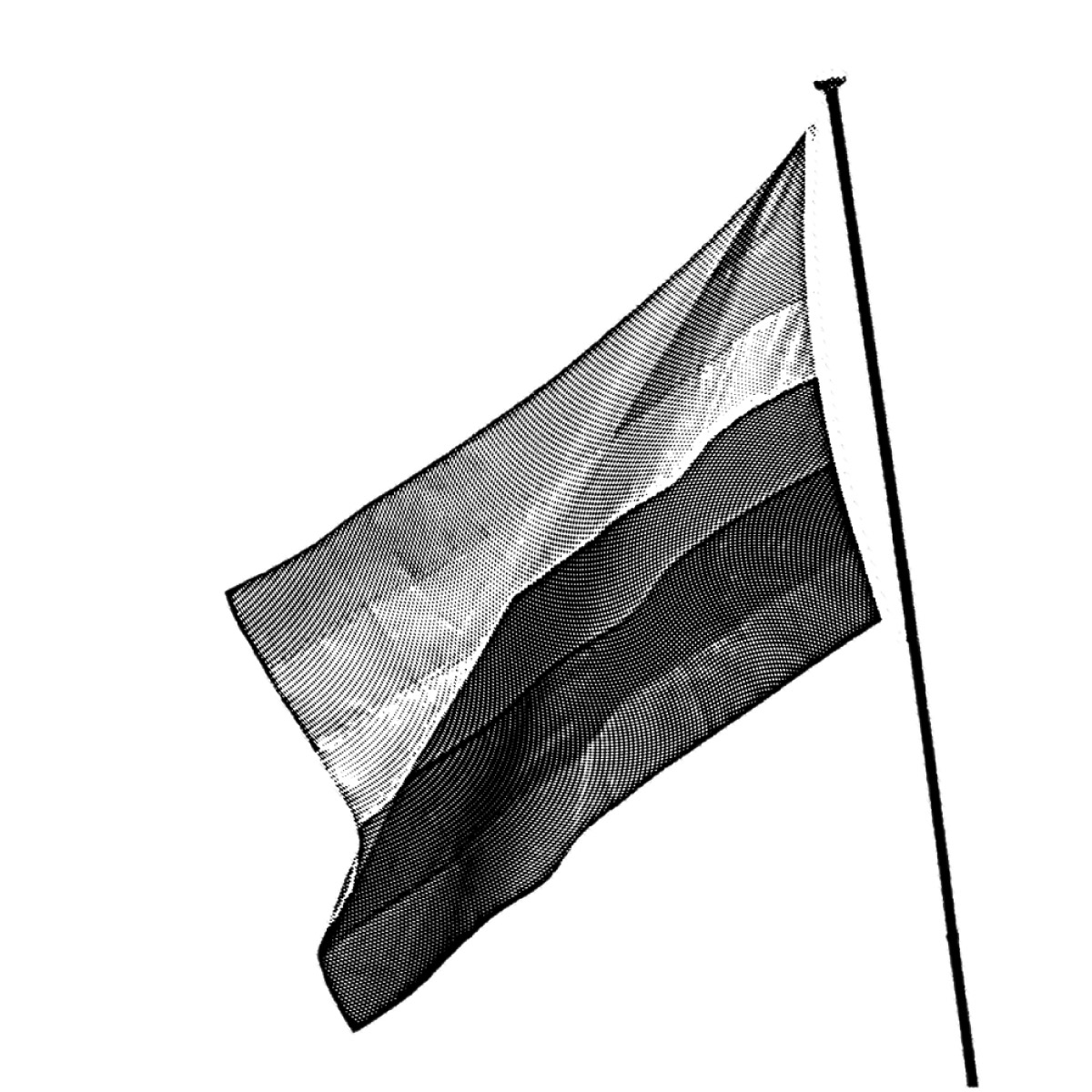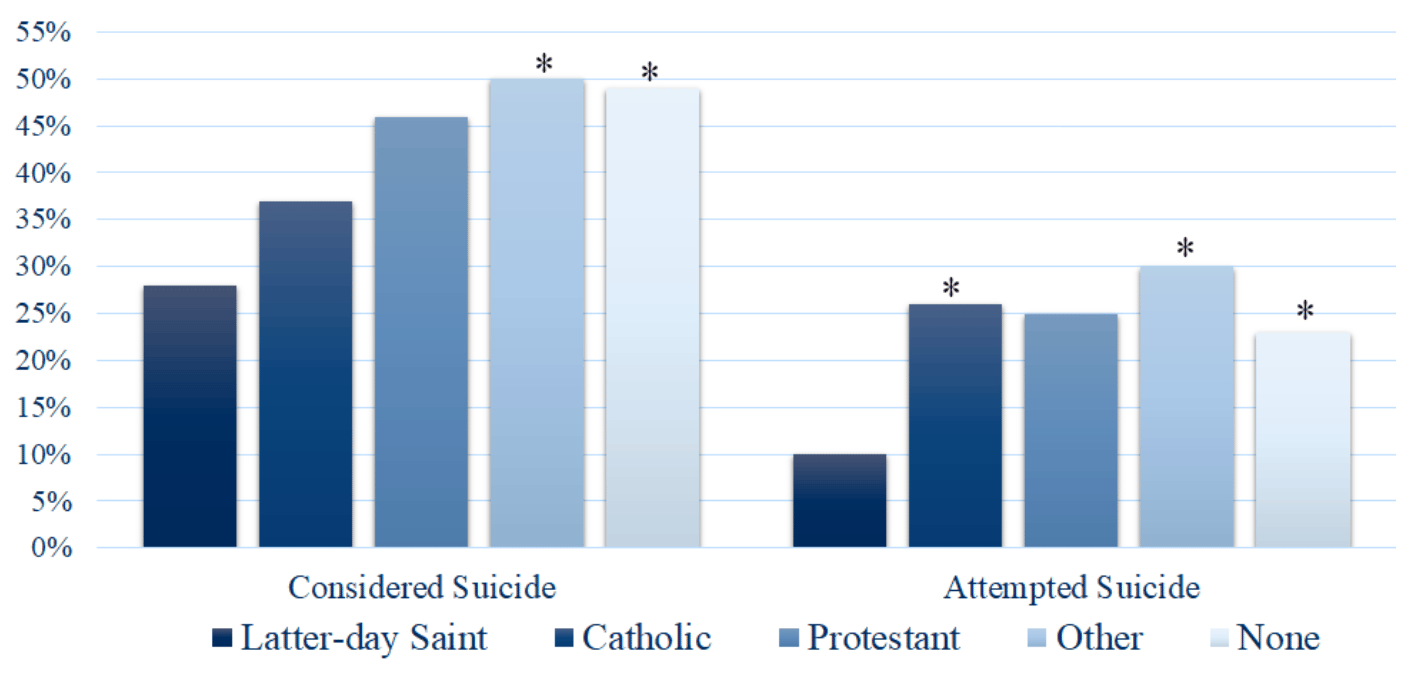LGBTQ+ and Suicide Rates

Do LGBTQ+ people have a higher-than-average suicide rate?
Yes, probably. Because the Centers for Disease Control and Prevention (CDC) does not track the sexual orientation of those who die by suicide, the suicide rates of the LGBTQ+ community are difficult to determine.[1]
However, LGBTQ+ individuals do show higher rates of behaviors associated with suicide—such as attempting suicide and suicide ideation.[2]
What are the reasons for this?
There are probably many reasons. Much of the research on LGBT suicide focuses on negative environmental factors, such as social stigma, familial rejection, and discrimination as contributing to a higher risk of suicide.[3] However, sexual minorities are also more likely to experience suicide risk factors such as drug abuse,[4] sexually transmitted diseases,[5] severe mental illness,[6] and homelessness.[7]
LGBQ Suicidality in Utah Students

Related Question
Do members of the Church have a higher-than-normal use of antidepressants?
Read more in Antidepressants in Utah
Does the Church contribute to a higher suicide rate in LGBTQ+ people?
Possibly. The data is mixed on this.
Studies using government and general population surveys suggest that sexual minorities who are Latter-day Saints in Utah report better mental health and significantly lower suicidality than non-Latter-day Saints.[9][10]
Other online survey studies[11] suggest that Latter-day Saint sexual minorities report worse mental health than their non-Latter-day Saint counterparts.[12]
Still other studies show no difference in mental health or suicidality.[13]
Does Utah have a higher suicide rate for LGBTQ+ people than other states?
It's unknown. There isn't a study comparing LGBTQ+ suicide rates in Utah versus other states.
Does discussing Latter-day Saint/LGBTQ+ suicide help prevent suicides?
Possibly. Creating awareness of risk factors related to suicide is important for prevention and mitigation.[14] However, public discussion of suicide can have negative impacts[15] and can also result in increased suicide ideation and behavior.[16]
Deaths by suicide are most often informed by multiple overlapping causes, so framing suicide as a reaction to a single factor can be harmful.[17]
- C. C.
“We need to reduce these suicide rates within our communities.” - Bella F.
“As a bisexual Latter Day Saint. I weep for and with my fellow LGBTQIA+ brothers, sisters, and siblings. I think it depends on how you view the current doctrine on the subject and what situation in life you are in.” - Mark
“If it is true that Latter-day Saint queer people have less suicidal ideation than their peers in other faiths or with no faith, then we need to do a better job of keeping them in the Church.” - Varden H.
“Internet convenience samples are not good data. And since publishing that suicide is common can lead to more suicide, we should be very careful. In statistics and surveys, sample selection matters. Internet surveys are biased and select only people who have a certain view.” - Juni
“I appreciate Mormonr. I think it is important to note that simply "being gay" is not a sin any more than "being straight." And I think we need to be more accepting and loving of our gay brothers and sisters.”



 about this topic
about this topic